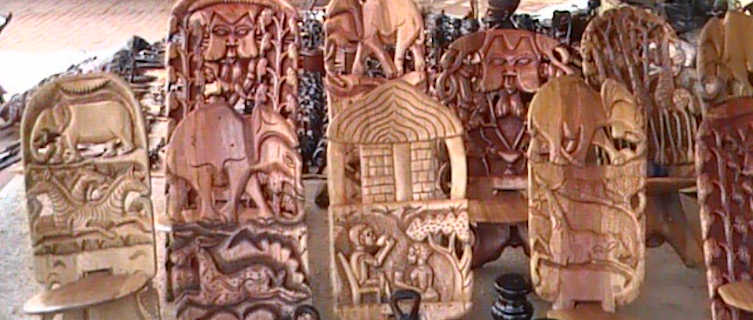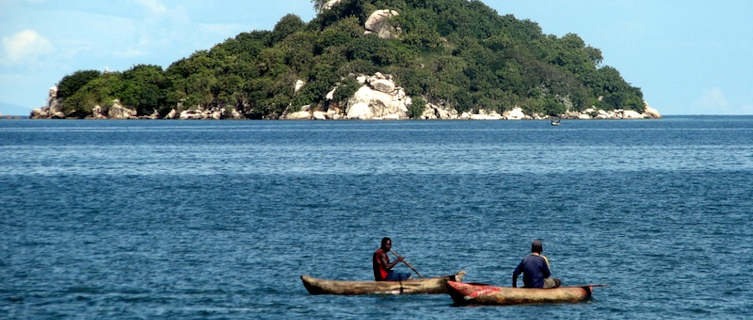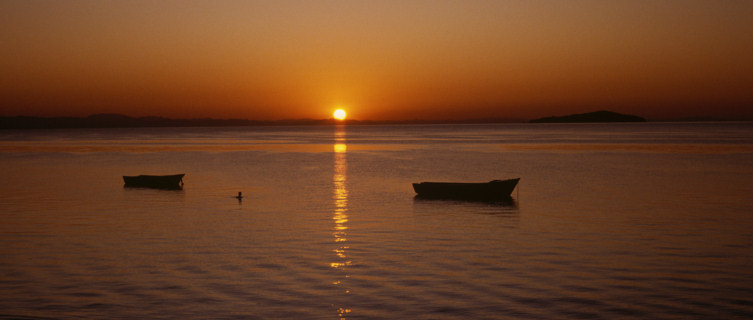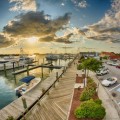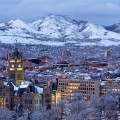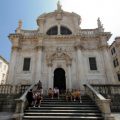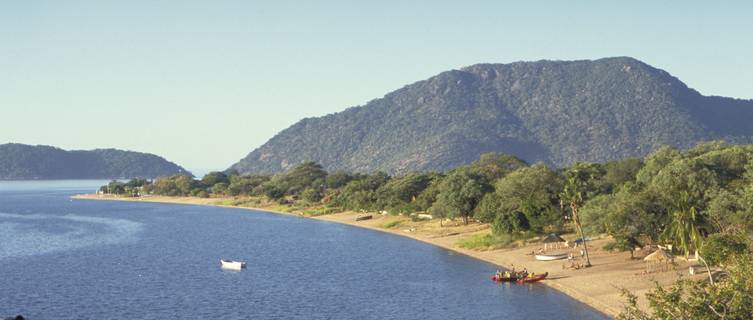
Little Malawi is dwarfed by its much bigger southern African neighbours and this has undoubtedly affected both its tourism and its economy over the years. Malawi currently has nine national parks and wildlife reserves, six of which are especially recommended for visitors. There are also many attractive and accessible forest reserves. All the parks and reserves are uncrowded and give visitors an excellent experience of unspoiled wilderness. In 2012, lions were reintroduced into Majete Wildlife Reserve after a 30-year absence, which means Malawi is once again home to the Big 5 (lion, leopard, elephant, buffalo and rhino).
As well as iconic African wildlife, Malawi also boasts diverse scenery, including deep valleys, evergreen forests and waterfalls, all presided over by the dramatic peaks of Mount Mulanje and the rugged and regal Zomba Plateau in the south.
Outdoor activities are central to any visit to Malawi. You can trek, mountain bike or horse ride in entirely natural surroundings or climb peaks and plateaus. But the vast Lake Malawi remains the shimmering jewel in Malawi’s crown. Cut into the Great Rift Valley and stretching from the northern tip of the country to Mangochi in the south, Lake Malawi is Africa’s third largest lake. Some of the world’s rarest tropical fish are found here, not to mention myriad bird species. It’s a dream destination for twitching, scuba diving and kayaking, or simply relaxing by the beach.
Travel Advice
Crime
Most visits to Malawi are trouble-free, but you should take sensible precautions to protect yourself from muggers and bag-snatchers. Most thefts from visitors take place around the main bus stations in Lilongwe and Blantyre. Avoid walking around quiet areas, especially after dark. Leave valuables and cash in a hotel safe, where practical. Keep copies of important documents in a separate place Report any thefts to the police as soon as possible.
There have been several outbreaks of violence in market areas involving protestors throwing rocks and the police responding with tear gas. Take extra care in market areas.
Lock car doors and keep windows closed. Armed carjacking is a risk, especially for drivers of four-by-four vehicles. Don’t offer lifts to strangers and look out for obstructions in the road ahead.
Be cautious if over-friendly people approach you offering to act as guides or selling goods, or who claim to know you and ask for a lift. Don’t accept food or drink from strangers; people have been robbed after eating drugged food.
House burglaries, including by armed gangs, do occur though crime rates are low by regional standards. There has been an increase in break-ins in Lilongwe, Blantyre and Limbe, including violent assaults on residents. Review your security systems and watch out for anything unusual.
Seek security advice from the Mulanje Mountain Club if you intend to climb Mulanje Mountain.
Road Travel
Driving in Malawi can be hazardous. Always wear a seatbelt and avoid travel after dark. Potholes, animals, abandoned vehicles and cyclists can cause serious accidents, as can vehicles travelling at night without lights.
Malawi has a very high rate of fatalities on the road. Travel between towns by public minibus or pick-up truck isn’t recommended; vehicles are often in poor condition and overloaded. Emergency services are basic. Larger coach services do run between the major towns and are more reliable.
The Malawi Police Service has introduced breathalyser tests, and regularly stops vehicles for speeding. There are speed cameras on the main roads. Drivers caught drink driving or speeding can have their licences and vehicles confiscated on the spot. Convicted drivers face a fine and/or imprisonment. The blood alcohol limit is 0.08g per 100ml of blood (the same as in England, Wales and Northern Ireland).
When driving in Malawi you should carry a valid driving licence at all times, a copy of your passport and your visa or residence permit; you may need to produce it at police check points. You can drive using a UK driving licence for up to 90 days or an International Driving Permit for up to one year. Slow down in all built-up areas. Traffic police often place speed cameras where there are no signs showing the speed limit. The police can impose on the spot fines.
Malawi Food and Drink
Relatively free from outside influences, the food of Malawi remains rustic and traditional. Outside of the big cities, it’s likely the food you eat will have been grown locally by those serving you.
Dishes are centred on starchy carbohydrates, which are still often served at all three daily meals, with side dishes of vegetables and meat, particularly chicken and goat.
Fresh fish from Lake Malawi is the country’s speciality, and is both tastily cooked and easy to come by. Dairy products are plentiful thanks to cattle farming, and tropical fruits such as bananas, mangoes and pineapples are abundant in season.
Specialities:
- Nsima: Traditional thick carbohydrate staple made from maize flour.
- Ndivo: Sauce or stew made with either vegetable leaves or meat that is added to nsima for flavour.
- Utipa: A small fish like whitebait or sardines.
- Chambo: Often curried with carrots, onion and lemon juice, this fish is also known as tilapia.
- Nkhwaniwotendera: Pumpkin leaves in peanut powder stew.
- Dziwala: Fried grasshopper sprinkled with onion, salt and tomatoes.
- Nthochi: Bread made from mashed banana.
- Waliwasamaki: Salmon served with vermicelli, onions, carrots, rice and seasoning.
- Mbatata: Biscuits made with sweet potato and cinnamon.
- Mandasi: Type of plain local deep-fried doughnut.
- Mawehu: Refreshing unsweetened non-alcoholic drink made from maize meal.
- Chibuku: Served in a milk carton this beer is made from fermented maize and has the consistency of porridge.
- Kuche Kuche: A light local beer.
- Malawi Gin: Serve with tonic and a slice of lemon.

